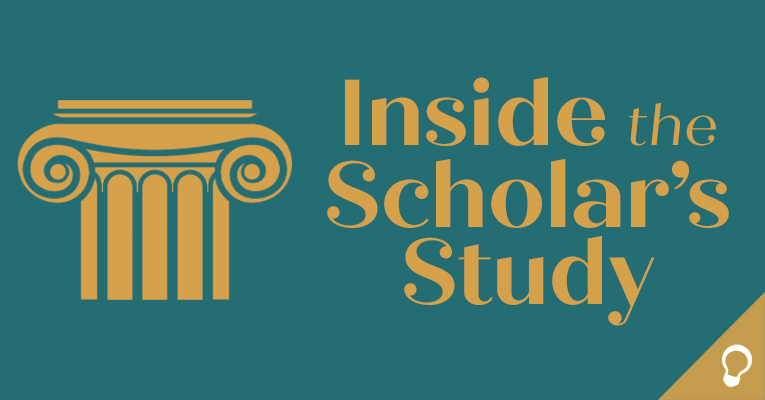
Podcast: Play in new window | Download

Season 3, Episode 8
For Friday, March 18, 2016
“Two Men Go Up To Worship”
HOST: Wade Webster
Show Notes:
Jesus told a parable about two men who went up to the temple to pray or to worship (Lk. 18:9-14). One man was a Pharisee, and the other was a publican. At the end of their worship, one man went down to his house justified, and the other did not. What was the difference? As we examine this inspired story, we will see five key differences that caused one man to leave worship justified, and the other man to leave worship in the same condition that he came.
Episode Transcript:
Jesus told a parable about two men who went up to the temple to pray or to worship. One man was a Pharisee, and the other was a publican. At the end of their worship, one man went down to his house justified, and the other did not. What was the difference? Let’s read the parable and see if we can discover the difference:
“And he spake this parable unto certain which trusted in themselves that they were righteous, and despised others: Two men went up into the temple to pray; the one a Pharisee, and the other a publican. The Pharisee stood and prayed thus with himself, God, I thank thee, that I am not as other men are, extortioners, unjust, adulterers, or even as this publican. I fast twice in the week, I give tithes of all that I possess. And the publican, standing afar off, would not lift up so much as his eyes unto heaven, but smote upon his breast, saying, God be merciful to me a sinner. I tell you, this man went down to his house justified rather than the other: for every one that exalteth himself shall be abased; and he that humbleth himself shall be exalted” (Luke 18:9-14).
What differences did you detect in these two men? What caused one man to leave worship justified and for the other man to leave worship in the same condition that he came? Let’s contrast the two men:
First, one man prayed with himself, while the other man prayed with God.
The Pharisee stood and “prayed thus with himself.” It is interesting that these words are only used of the Pharisee. We are told that both men stood. We are told that both men prayed. We are told that both men began their prayers with the name of God. However, we are only told that the Pharisee prayed with himself. Although the Pharisee addressed his prayer to God, it seems clear that God was not his primary audience. His primary audience was himself. In contrast, the publican wasn’t praying with himself. He was praying with God.
Second, one man examined others, while the other man examined himself.
The Pharisee thanked God that he was not like other men. He specifically made reference to the publican. Clearly, he was examining others. In contrast, the publican didn’t mention anyone else. He only spoke of himself. He was looking down, and not around. He was examining himself, and not others (1 Cor. 11:28).
Third, one man spoke of the sins of others, while the other spoke of his own sins.
The Pharisee spoke of those who were extortioners, adulterers, and unjust. He spoke of their sins, but not of his own. In contrast, the publican spoke of his own sins. He said nothing about the sins of others.
Fourth, one man puffed his chest out in pride, while the other man pounded his chest in humility.
As already noted, the Pharisee thanked God that he was not like other men. He went on to declare how much he gave and how much he fasted. You might say, he told God how much he sacrificed and how much he suffered. In contrast, the publican didn’t mention his giving or his fasting. He only mentioned his sins.
Fifth, one man thought that he needed nothing, while the other man knew that he needed God’s help.
The Pharisee did not ask for anything. He spoke of what he gave to God, but not of what he needed from God. You may recall that the Laodiceans manifested this same spirit. They thought that they were rich, increased with goods, and had need of nothing. However, the Great Physician knew that they were poor, naked, blind, and miserable (Rev. 3:17). In contrast to the Pharisee and the Laodiceans, the publican knew that he needed something. He knew that He needed God’s mercy.
By examining this parable, we see what is required of those who want to leave worship justified. First, to leave worship justified, we must address our prayer/our worship to God. Second, to leave worship justified, we must examine ourselves and not others. Third, to leave worship justified, we must speak of our own sins and not of the sins of others. Fourth, to leave worship justified, we must pound our chest in humility, and not puff it out in pride. Fifth, to leave worship justified, we must recognize our need for God’s help.
As we get ready to worship this week, let’s remember the story of two men who went up to pray. Let’s do our best to imitate the publican, the man who went down to his house justified.
Your Feedback
- Email: wade@thelightnetwork.tv
- Voicemail: 903-26-LIGHT (903-265-4448)
- If you enjoyed the show, please rate it on iTunes and write a brief review. That would help tremendously in getting the word out! Thanks.
Previous Episodes
Subscription Links






